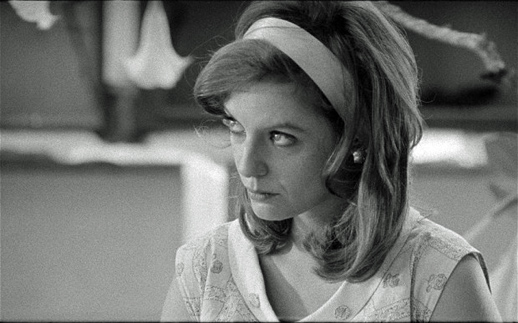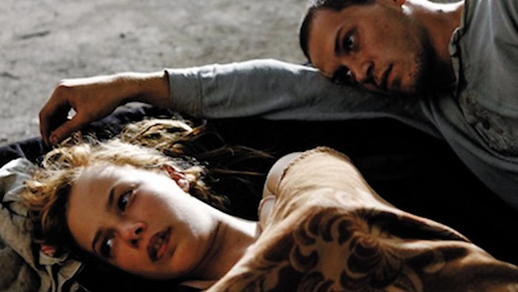
Each year at the Vancouver International Film Festival — for many, many years now — admin staff (this used to be Jane Macdonald’s job before she retired from the Festival) have chosen an audience-pleasing, feel-good film to pack the house and draw in a crowd who might not normally attend a film festival. Most of the time, the films chosen succeed in doing what was intended. In 2012, the film assigned as the mid-Festival audience-pleaser:
- Love Is All You Need (Grade: C+): Susanne Bier is an Academy award winning director (for 2011’s, In A Better World). In 2012, jettisoning her social conscience, Ms. Bier has turned out a film that, although well-crafted (production design and cinematography are both first-rate), emerges at best as pablum, a film that drags out all of Hollywood’s worst rom-com tropes, with an unsurprising and woefully underwritten script that telegraph’s the entire movie in the first five scenes. Not the worst film on tap at VIFF 2012, but omigawd, is Love Is All You Need the direction Ms. Bier intends to take her career?
Yes, it is true: VanRamblings is something of a curmudgeon. From comments made to VanRamblings after the screening, the reception was generally positive. VanRamblings understands that there’s an economic imperative at work here: Tuesday night’s screening sold out, the film brought in Festival-goers who might not otherwise attend a VIFF film — the salutary consequence: VIFF participation is democratized, and a new audience comes out to enjoy the Festival, which event always, always has to be seen as a good thing. We just wish a better film had been chosen.
![]()
![]()
![]()
 A scene from Brazilian director Kleber Mendonça Filho’s new masterwork, Neighbouring Sounds
A scene from Brazilian director Kleber Mendonça Filho’s new masterwork, Neighbouring Sounds
Neighbouring Sounds (Grade: A+): A masterwork. We can easily understand why NPR / Vogue film critic John Powers has called Kleber Mendonça Filho’s new work, “the best film of 2012”. There is no film at VIFF in 2012, in which the director has a firmer grasp of the cinematic mise en scène (there is some competition on that front, though, in a film we ‘review’ below). The elements within Mendonça Filho’s tour-de-force piece of filmmaking are reminiscent of Kaurasmäki at his best: benevolent, sentimental, melancholy, arresting and oddly oblique, yet still very much full of meaning. One of the memory mood sense pictures at VIFF 2012, Neighbouring Sounds emerges as a film that is superbly constructed, beautifully shot, and infused with an aural landscape that serves, always, to inform our narrative appreciation of the film. To put it quite simply: Neighbouring Sounds is one of our favourite, favourite films at VIFF 2012.

Tabu (Grade: A): Borrowing its title from FW Murnau’s 1931 love story on the South Seas, Miguel Gomes’ surreal, fever dream of a movie takes place first in contemporary Lisbon, before switching to the lush savannahs of a central African colony some fifty years previous. A lavishly (and justly) acclaimed FIPRESCI prizewinner at Berlin in 2012, Gomes’ black-and-white Portuguese puzzle picture comes as close to pure cinematic magic as you’re going to find at VIFF 2012. With a narrative exposition related through meltingly gorgeous voiceover, Tabu’s ravishing two-part saga of amour fou — as two women attempt to track down the mysterious man with whom the lead character had a passionate affair in her youth — represents (we think you will find) a genuinely remarkable cinematic achievement, as audacious and visually stunning a film as you’re likely to see this year at the Vancouver International Film Festival. Screens for a final time this evening, October 4th, at 6:15pm in the Vancity Theatre. A VIFF must-see film.

Lore (Grade: B+): A very good film, well-directed by Cate Shortland, with a solid screenplay, wonderful cinematography (the production craft work, in general, is first-rate), and overall fine performances from all involved, the film’s end of WWII tale about the children of senior Nazi officials escaping through the backroads of Germany amidst the chaos and lawlessness that followed in the weeks and months after the end of the war pulls you in, but not as far as it could, and certainly not as far as it should have. Why? At the centre of the film, there is Saskia Rosendahl — blonde, pretty, Aryan in that preternatural sense, and a chilly presence on screen. Where Abbie Cornish burnt up the screen in Shortland’s début film, Somersault, and where the three actresses starring in films at VIFF 2012 who we identified yesterday possess that light from within, leaving the viewer defenseless and vulnerable to the innate melancholy that refracts and breaks and burrows in from these girls / young women, in the process wrenching our heart while eliding into our bloodstream, sorry to say that Ms. Rosendahl — for all that she is a very pretty young woman — simply does not command our attention. With Lore, Cate Shortland stumbles in the casting of Rosendahl. Overall, the picture doesn’t fail. In fact, Lore emerges as one of the stronger, “big” (read: important) films at VIFF 2012.

When The Night / Rust and Bone: VanRamblings is just dying to write about these films, the symmetry shared between them — character development, narrative structure, ‘catastrophic’ event involving a child, and eventual, very hard won resolution, and how it is arrived at, employing virtually identical screenplay and performance beats, not to mention the same three words (meaning the same thing, the spirit of the declaration arrived at in an identical manner), spoken in the film’s penultimate scene, by the dark, troubled man to the equally damaged woman with whom he has failed previously to communicate explicitly (we in the audience know what’s going on, we’re ahead of the characters, that they get to where they are going, so to speak, opens the possibility of redemption, for the characters and, by extension, perhaps for us) … well, we can’t write about that, can we? You haven’t seen both films, and to write about the films at length would be to leave open the possibility of spoiling the magic of the films. By the way, between the two films, VanRamblings is firmly in the When The Night camp, a film we loved, loved, loved — at least, in part, because the narrative has subjective meaning for us, as a reflection of a similar circumstance of connection (and, perhaps, kismet) that resonates within us still, that remains — as it has for many, many years now — a central feature of VanRamblings’ inner emotional experience of life on this planet.